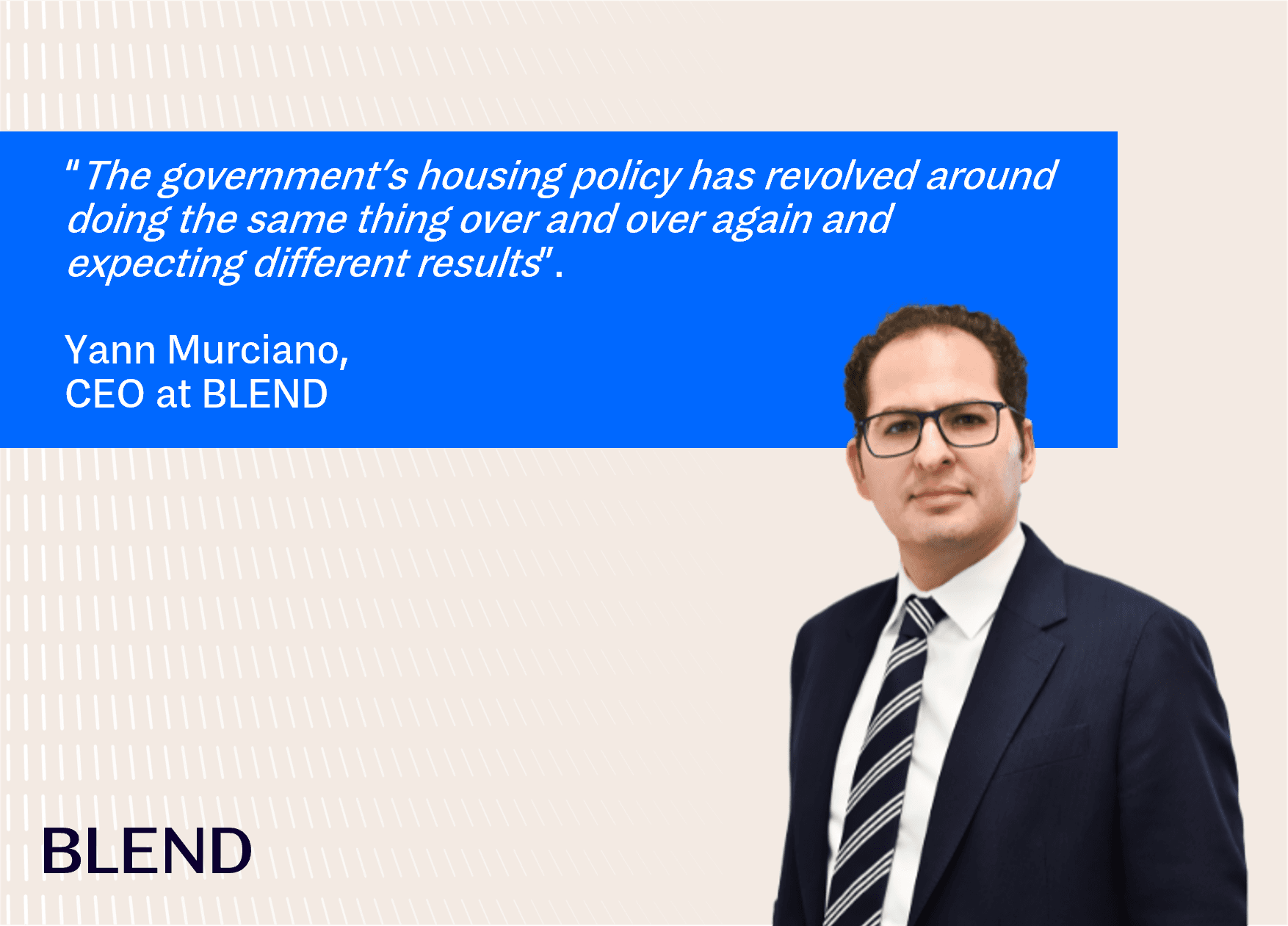The Northern Irish housing market has continued to push higher in recent months despite the growing concerns around the cost-of-living. Over the past 12 months, Northern Ireland saw a 14.3% increase in the price of existing housing stock, the largest increase across all the UK regions[1]. Compared to pre-pandemic levels, the price of existing housing stock in Northern Ireland has rocketed by a third, far above the price increase seen across any other UK region.
At Blend, we have long been committed to Northern Ireland because we understood the historical pressure of housing supply in Northern Ireland and the lack of funding in the region. Our long-standing investors will know that since 2018 we have been backing Northern Irish SME property developers, having funded in 2018 what at the time was the largest property loan under HMRC’s Bank Referral Scheme in Northern Ireland to support a scheme in Bangor. We recently announced the appointment of Philip Anderson as our new Northern Ireland lending manager. We recently sat down with Philip for a chat on our Spotlight On interview.
Question: Coming from a traditional lender, you recently joined Blend to help expand lending operations in Northern Ireland. Tell us about why decided to move from a traditional lender to a specialist lender. What do you find most appealing at a specialist lender?
Philip: That’s right. I came from Allied Irish Bank where I worked for around 6 years. What I find most appealing about specialist lenders, particularly Blend, is the fact that it’s a nimble and agile organisation where everyone shares a common goal which is to support property developers unlock the funding they need to build more homes. The reality is that development finance has largely been inaccessible for Northern Irish developers. This is a challenge that stems from the aftermath of the Global Financial Crisis over a decade ago.
“Northern Ireland Development Finance needs an overhaul”.
Philip Anderson, Northern Ireland Lending Manager at Blend
Question: You are saying that Northern Irish developers face significant challenges when trying to access development finance for their projects from traditional lenders, but in fact the Northern Irish property market has been performing very strongly over the past few years. Could you expand more on that?
Philip: The latest Nationwide House Price Index data shows that over the past 12 months, Northern Ireland saw a 14.3% increase in the price of former owner-occupier houses, the largest increase across all the UK regions[2]. Compared to pre-pandemic levels, the price of former owner-occupier houses in Northern Ireland has rocketed by a third, far above the house price increase witnessed across any other region of the UK. But what happens in Northern Ireland is that the number of houses being build and delivered is much lower that what it should be. The Minister for Communities Deirdre Hargey has spoken of the need to deliver 100,000 homes over a 15-year period[3]. However, the total number of new dwelling completions in Northern Ireland in the first three months of the year plummeted to 1,571. Funding, or rather the lack of it, is a key challenge for Northern Irish developers.
“Access to funding is vital for Northern Irish developers”.
Philip Anderson, Northern Ireland Lending Manager at Blend
Question: In terms of development finance, what do you feel that traditional lenders are missing, and what do specialist lenders bring to the table?
Philip: That’s a great question. If we talk about the UK market generally (not Northern Ireland) nowadays the main development finance lenders are either the challenger banks or non-bank lenders. Most challenger banks offer very similar products, which incidentally do not cater particularly well to the needs of modern and experienced property developers because they don’t offer enough gearing and instead offer very conservative terms. As a result, when a property developer needs more gearing, the challenger banks are not happy to take the extra risk and can’t really price it either. So, the deal ends up going to the non-bank lenders and this is what I would describe as the Wild West. The UK non-bank lending market is extremely fragmented and inefficient, where lenders offer terms that are everything but transparent. Developers are not even treated well in this market. That’s where I believe specialist lenders like Blend come into play. We are regulated specialist lenders backed by committed funding lines from family offices and institutional investors. That’s important because it means our source of capital is flexible, and flexibility is what property developers need.
Question: So, what is next for Blend and what should we expect to see in the coming months?
Philip: Well, we are growing our loan book and we are keen to continue to deploy funding in the Northern Irish market and supporting SME developers and small construction companies. We recently announced that we secured £120m in committed capital from family offices and we are very keen to allocate part of that to the Northern Irish market. So, expect to see more funding from us in Northern Ireland!
Philip Anderson is a Lending Manager at Blend based in Belfast, Northern Ireland.
For more information, please visit www.blendnetwork.com or email Philip on Philip.anderson@blendnetwork.com
BLEND Loan Network Limited is authorised and regulated by the Financial Conduct Authority (Reg No: 913456).
BLEND Loan Network Limited is registered in England and Wales. Registered office: Evelyn House, 142 New Cavendish Street, London W1W 6YF.
Don’t Invest unless you’re prepared to lose money. This is a high-risk investment. You may not be able to access your money easily and are unlikely to be protected if something goes wrong. Take 2 mins to learn more.
[1] Source: Nationwide House Price Index, https://bit.ly/3abM0S5
[2] Source: Nationwide House Price Index, https://bit.ly/3abM0S5
[3] Source: Northern Ireland Department for Communities, https://bit.ly/3ulZ4uH



